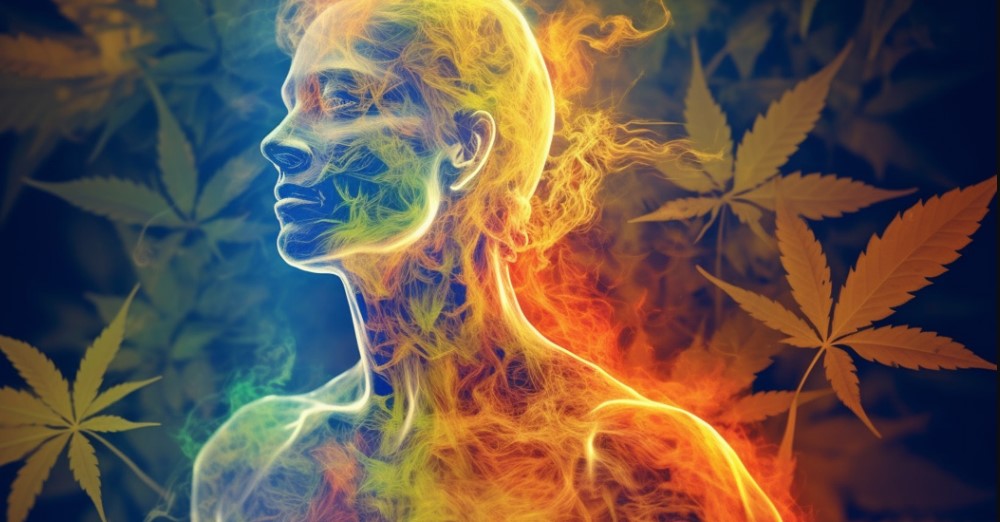Creativity is a complex cognitive process, often enhanced or influenced by various environmental and biochemical factors. One such factor that has been the subject of considerable debate and research is the use of cannabis. Proponents suggest that cannabis can enhance creativity, making it a popular tool among artists, musicians, and writers.
Read on to learn more about the connection between cannabis and creativity.
The Science of Cannabis and Creativity
Cannabis affects the brain in ways that can be linked to creativity. The primary psychoactive component, tetrahydrocannabinol (THC), interacts with the brain’s endocannabinoid system, which plays a role in mood, thought patterns, and perception. It is believed that cannabis can lead to an increase in cerebral blood flow to the frontal lobe, the area responsible for creative thinking and creativity. This can potentially enhance creative abilities, but the effect varies widely among individuals.
However, understanding the true impact of cannabis on creative processes requires a nuanced exploration of the science behind it and considering legal contexts. For instance, for those living in locations like Virginia, getting familiar with topics like Virginia’s weed rules can help them use cannabis for creativity more effectively.
Cognitive Flexibility and Divergent Thinking
One key aspect influenced by cannabis is cognitive flexibility, the ability to generate creative ideas by making connections between seemingly unrelated concepts. Divergent thinking, a type of thinking that explores many possible solutions, may also be enhanced.
However, while some studies show promising results, others suggest that cannabis might impair short-term memory and cognitive function, which are crucial for complex problem-solving.
Psychological and Subjective Factors
The interplay between cannabis and creativity extends beyond mere biological effects to encompass a range of psychological influences. Users often describe a heightened sense of creativity, which may not directly stem from cannabis itself but from the belief in its effects, thus fostering a psychological state conducive to creative work. This placebo-like effect can be powerful.
Moreover, cannabis is known to decrease inhibitions and enhance openness to new experiences—traits that are intimately linked with creative endeavors. This reduction in inhibitions can make users more willing to explore unusual ideas or engage in creative risks they might otherwise avoid.
The Role of Mood and Environment
The impact of cannabis on creativity is significantly influenced by the user’s mood and the surrounding environment. Positive mood changes, often induced by cannabis use, can help dissolve mental barriers to creativity, such as anxiety or stress, facilitating easier access to a flow state. This state is characterized by a feeling of energized focus and enjoyment in activities, which is ideal for creative pursuits.
Conversely, a setting that is stressful or non-supportive can counteract these benefits. Thus, the optimal use of cannabis for enhancing creativity requires the right psychological conditions and an environment that nurtures and inspires creative thought.
Legal and Social Implications
Navigating the legal landscape is essential for understanding the role of cannabis in creative processes. The legal status of cannabis varies dramatically across different jurisdictions, directly affecting its availability and the scope of research into its effects. In places where cannabis is legal, researchers have the freedom to conduct in-depth studies, potentially offering more definitive insights into how cannabis interacts with creativity.
These legal frameworks influence scientific understanding and shape the social acceptance of cannabis as a tool for creative enhancement, affecting its integration into cultural norms and practices.
Impact on Professional Fields
Within professional circles, particularly in regions where cannabis is legalized, its use as a creativity enhancer is gaining traction and acceptance. This trend is observable in industries like music, visual arts, and writing, where cognitive flexibility can lead to significant breakthroughs in originality and expression.
However, this acceptance brings with it ethical responsibilities—to prevent dependency and ensure that professional duties are not compromised. The challenge lies in balancing the creative benefits of cannabis with responsible use, ensuring it contributes positively to professional and personal outcomes without adverse effects.
Therapeutic Uses of Cannabis in Creative Therapy
Cannabis has found a place in therapeutic settings as a facilitator of creative art therapy, aiding individuals in expressing themselves in ways that might be unreachable through conventional methods. This form of therapy is particularly effective for individuals dealing with emotional and psychological barriers that inhibit expression.
Through the modulation of mood and perception, cannabis can help unlock creative channels, offering patients new ways to articulate their feelings and experiences. It’s a tool that can bring significant breakthroughs in therapy, particularly when traditional methods fall short.
Enhancing Creative Therapies
Cannabis’s ability to induce a relaxed state can significantly enhance the effectiveness of creative therapies. Lowering psychological barriers such as anxiety or self-doubt allows individuals to engage more deeply with the creative process, making it a valuable component of therapeutic practices. This is especially beneficial for those using creative outlets to manage conditions like anxiety and PTSD.
In these scenarios, cannabis facilitates creative expression and serves as a bridge to emotional recovery, helping patients navigate their experiences and emotions in a supportive therapeutic environment.
Conclusion
The connection between cannabis and creativity is complex and influenced by a multitude of factors, including individual brain chemistry, psychological state, and the legal environment. While cannabis may enhance creativity in some individuals, it can also impair cognitive functions essential for creative processes in others. Understanding cannabis in creative domains will likely help individuals navigate its use in culturally and legally appropriate ways.

